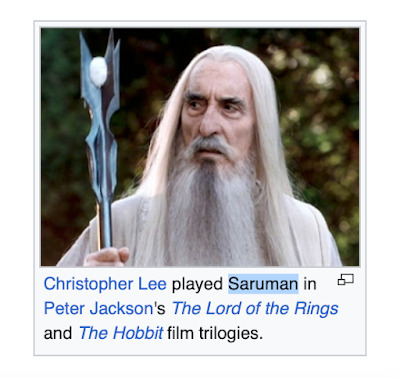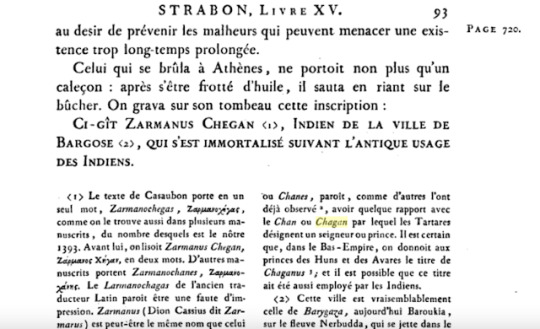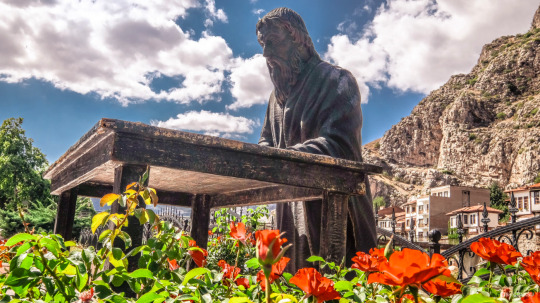#Strabo
Explore tagged Tumblr posts
Note
Helloo I hope you're doing well :) I was reading about Hector and realised I've never seen him outside of the Iliad. Does he appear in other texts ?
Hello and thank you very much for your sweet words and your ask! Oh yes of course. Hector appears in a plethora of ancient Greek and Roman texts but the real test is to see him outside the context of the Trojan war! Hahaha!
For example Hector appears in plenty of texts by Apollodorous in various contexts and he even mentions how Hector was the one to kill Protesilaus and that is mentioned in several sources more I believe Hyginus included as well as a writer called Philostratus mentions the death of Protesilaus by the hands of Hector. Pausanias mentions Hector in one painting or image sitting in a mourning manner next to the Ethipian king Memnon after the Thracian Thamyris. Plutarch also mentions Hector in various of his texts in the context of Trojan War. Eurypedes mentions Hector in many of his tragedies. Strabo makes mentions to Hector during his geographical expeditions. Plato mentions Hector a lot in his work (even in Apology), Pindar as well as Diodorus Siculus. Last but not least we have Aristotle who mentions Hector in various of his works.
For other roman sources we have of course the Aenead by Virgil and Ovid. Even Pliny the Elder makes mentions to Hector and of course P. Virgilius Maro as he makes commentary on Virgils' Aenead. P. Ovidius Naso also mentions him in his work among other written roman sources including Horace
For his physical description we again have the classic cases of Malalas and Dares the Phrygian. And of course again we have kinda contradictory accounts on him:
Dares the Phrygian: Hector spoke with a slight lisp. His complexion was fair, his hair curly. His eyes would blink attractively. His movements were swift. His face, with its beard, was noble. He was handsome, fierce, and high-spirited, merciful to the citizens, and deserving of love. Malalas: dark-skinned, tall, very stoutly built, strong, good nose, wooly-haired, good beard, squinting, speech defect, noble, fearsome warrior, deep-voiced.
To name a few writers who mention him! Happy to provide the passages you want in the future. Most of the contexts in which Hector is being mentioned is around the trojan war and the epic cycle or used as an example for rethorics. ^_^
And of course do not forget how Hector's name is being mentioned to Linear B tablets! ;)
I hope this helps!
#katerinaaqu answers#hector#tagamemnon#greek mythology#ancient sources#hector's name#hector of troy#heroes of the trojan war#homer#aristotle#apollodorus#pausanias#eurypedes#malalas#dares the phrygian#ovid#virgil#strabo#plato#pliny the elder#pindar#diodorus siculus
23 notes
·
View notes
Note
This question usually comes up framed as “did Alexander know about China?” - but what I really want to ask is: how aware was Alexander of what was to the East of his conquests?
He reached India, so he must have known that there were kingdoms / civilizations / countries that form what we presently call India as well. Was he aware of say, Tibet? Or Southeast Asia? I’m fairly certain Alexander and China didn’t know about each other, but if Alexander initially wanted to expand to the east, what did he know about it?
How Much Did Alexander Know about the East?
I suspect this changed as he moved east. The wall of the Himalayas is pretty steep. I'm not sure the route that would become the Silk Road was really open yet; it dates to the first century BCE. Alexander did encounter silk, but I believe it was in India. Silk starts popping up in the West after Alexander, although, again, some limited silk coming via Persia (via India) is older.
That said, when the army hit Marakanda/Samarkand, which was ON the later Silk Road, it's entirely possible that he'd have heard something. I doubt it would have been very clear, however.
It's really in India that he'd have heard more. After the Battle of the Hydaspes, the army hung out in Poros's lands for a bit. That's where he heard enough about the extremely warlike nations further into India--as did the army--that led to the indiscipline at the Hyphasis. In fact, some scholars have suggested Alexander actually *staged* the indiscipline, to give him an excuse to turn around. He knew he didn't have enough troops to take on the kingdoms in central India.
How much he heard about China beyond that, I don't know. It would depend on how much was known in the Punjab region.
But certainly, Alexander's army returned with a lot more information about Central Asia, and further east, than had been known before.
Strabo's Geography (Roller has the complete collection translated) is probably the best place to look. He used a number of the now-lost Alexander historians, when writing, and even evaluates the reliability of these.
#Alexander in the East#Alexander in India#Alexander in Baktria#Bactria#Poros#Strabo#Alexander the Great#asks#Classics
25 notes
·
View notes
Text
Thinking about her.

#where is her retelling?#Larissa#Larisa#greek mythology#ancient greek mythology#greek pantheon#Strabo
19 notes
·
View notes
Text
The Graphic Novel Conan the Barbarian: The Horn of Azoth was published with cover date of April 1990. The story was based on the original script Gerry Conway and Roy Thomas had developed for what eventually became the film Conan the Destroyer. The GN introduced to Marvel Natari, Shumballa, Amboola, Dahomi, Rammon son of Rammon, Azoth, Luda, Leeches, Strabo, Karanthes, Rammon, Kezanki, Gambinus, and Moria. ("The Horn of Azoth" Marvel Graphic Novel/Comic Event)

#nerds yearbook#real life event#first appearance#comic book#graphic novel#marvel#marvel comics#april#1990#conan#conan the barbarian#gerry conway#roy thomas#mike docherty#the horn of azoth#natari#temple of ibis#shumballa#amboola#dahomi#rammon#azoth#dreaming one#dreaming god#luda#shadizar#leeches#strabo#karanthes#kezanki
5 notes
·
View notes
Text
Okay I know what books I want to write I'm just struggling on where I should start. So poll time...
*Pompeia
In that first option bloody autocorrect hates me
Because like I know I want to start with either Pompeius Magnus for a chronological take or with Pompeia for a backwards order of some sort. Possibly having her compile her family history in her novel and then writing the novels about her predecessors like they're her work. I dunno. Starting a book is always the hardest but my head is so full of ideas.
#roman history#ancient rome#roman empire#how often do you think about the roman empire#ancient history#pompey#pompeius magnus#sextus pompey#Sextus Pompeius#pompeia#pompey Strabo#pompeius#gnaeus pompeius magnus#Pompeius Strabo#strabo#strabo the butcher#julius caesar#the roman empire is my roman empire#rome#Cleopatra#marcus antonius#marcus vipsanius agrippa#agrippa#roman navy#lepidus#triumvirate#princeps#tiberius#livia#livia drusilla
8 notes
·
View notes
Text

PELOPS was the son of Tantalus, king of the Phrygians, who pined for Hippodamia, daughter of the king of Pisa. Seeking to have her as a wife, he was rejected by Oenomaus, father of that most elegant of virgins, who had set unfair conditions. This matter led to war: Oenomaus, betrayed by his captain Myrtilus, was conquered.
Therefore Pelops, having acquired Hippodamia as his wife, held the kingship of Pisa, in the 2617th year since the founding of the world and the 1346th before Christ was born. Known for his strength and wisdom, since he led many of his neighbors into the Peloponnese, he named the land “Peloponnese” after himself. Diodorus book 5, around the end.
He reigned for 59 years in Pisa, which is in Elis, next to Arcadia, whose residents founded the city in Italy of the same name. See Strabo, Geography book 7 and 8, also Raphael of Volaterra, book 34 [actually 30].
#pelops#prima pars#mythical figures#greek myth#rulers#diodorus of sicily#strabo#raphael of volaterra
2 notes
·
View notes
Text

“Among the most beautiful ... Of all peoples” Strabo 1st Century BC
—
“The Greeks and Romans considered the people of Ethiopia to be among the most beautiful and civilized of all peoples." Strabo 1st Century BC
14 notes
·
View notes
Photo
No, very, very good work, Strabo!
"Strabo of Amesia, active in the late first century BCE and early first century CE, wrote the longest surviving geography in Greek literature.
Strabo was amazing, given that he was born around 40 BC!
"The Geography of Strabo is the only surviving work of its type, and the major source for the history of Greek scholarship on geography. . . In addition, this lengthy and complex work [includes information on] the journey of Alexander the Great, the history of the eastern Mediterranean in the first century BC, and women's history. Modern knowledge of seminal geographical authors such as Eratosthenes relies almost totally on Strabo."
He made some other maps, which I found impressive as well.

Ancient Greek geographer Strabo’s map of the known world.
52K notes
·
View notes
Text
The Burnt Land of Lydia
"Another volcanic region of Asia Minor is the district of Lydia, to which, on account of its remarkable appearance, the Greeks gave the name of the Burnt Land. It lies to the east of Sardes in the upper valley of the Hermus, and covers an area of about fifty miles by forty. As described by Strabo, the country was wholly treeless except for the vines, which produced a wine inferior to none of the most famous vintages of antiquity. The surface of the plains was like ashes; the hills were composed of black stone, as if they had been scorched by fire. Some people laid the scene of Typhon's battle with the gods in this Black Country, and supposed that it had been burnt by the thunderbolts hurled from heaven at the impious monster. The philosophic Strabo, however, held that the fires which had wrought this havoc were subterranean, not celestial, and he pointed to three craters, at intervals of about four miles, each in a hill of scoriae which he supposed to have been once molten matter ejected by the volcanoes. His observation and his theory have both been confirmed by modern science. The three extinct volcanoes to which he referred are still conspicuous features of the landscape. Each is a black cone of loose cinders, scoriae, and ashes, with steep sides and a deep crater. From each a flood of rugged black lava has flowed forth, bursting out at the foot of the cone, and then rushing down the dale to the bed of the Hermus. The dark streams follow all the sinuosities of the valleys, their sombre hue contrasting with the rich verdure of the surrounding landscape. Their surface, broken into a thousand fantastic forms, resembles a sea lashed into fury by a gale, and then suddenly hardened into stone. Regarded from the geological point of view, these black cones of cinders and these black rivers of lava are of comparatively recent formation. Exposure to the weather for thousands of years has not yet softened their asperities and decomposed them into vegetable mould; they are as hard and ungenial as if the volcanic stream had ceased to flow but yesterday. But in the same district there are upwards of thirty other volcanic cones, whose greater age is proved by their softened forms, their smoother sides, and their mantle of vegetation. Some of them are planted with vineyards to their summits. Thus the volcanic soil is still as favourable to the cultivation of the vine as it was in antiquity. The relation between the two was noted by the ancients. Strabo compares the vines of the Burnt Land with the vineyards of Catania fertilized by the ashes of Mount Etna; and he tells us that some ingenious persons explained the fire-born Dionysus as a myth of the grapes fostered by volcanic agency."
—J. G. Frazer, Adonis, Attis, Osiris, part 1 (The Golden Bough, vol. V, 1914, pp. 193-194)

Katakekaumene—the Burnt Land—in modern-day Türkiye.
(Source: Ksmithoo, CC BY-SA 3.0 https://creativecommons.org/licenses/by-sa/3.0, via Wikimedia Commons)
#jg frazer#the golden bough#the golden bough vol v#adonis attis osiris#the burnt land#lydia#asia minor#sardes#hermus#turkey#turkiye#strabo#typhon#the black country#zeus#volcanoes#volcanic soil#lava#exemplary prose#geology#catania#mount etna#dionysus#nature writing
0 notes
Text
Does anyone have the "bad work strabo" post saved? please
#filodox!#tagamemnon#strabo#ancient greece#I need it to give me hope and strength for a paper I am embarking upon
0 notes
Text
Indian-Ambassador-to-Rome-Augustus-Zarmanos-Khagan

*

Strabon-Geography-Book-15
*
Strabon bundan 2000 yıl önce 'Coğrafya' adlı betiğinde şunu yazıyor: "Burada, Hintli atalarının geleneklerine uygun olarak kendini ölümsüzleştiren Bargosalı bir Hintli olan Zarmanochegas yatıyor." Peki, Hindistan Bargosa'dan İmparator Augustus'a gönderilen bu elçi kimin nesi?
ENGLISH:
Strabo writes this 2000 years ago in his book called 'Geography':
"Here lies Zarmanochegas, an Indian from Bargosa who immortalized himself in accordance with the traditions of his Indian ancestors."
So, who is this envoy sent from India Bargosa to Emperor Augustus?
*
*

Strabons Erdbeschreibung: in siebzehn Büchern, Volume 3
*
Adı Zarman-os/Sarman-os Khagan! Çoğu bilen adam, adamın namını zaten Türkçe Kağan ile açıklamış. Ama niyeyse adın kökeninde zorlanmışlar biraz. Cahil cesareti gösterip diyeyim: Neden SARMAN olmasın? Sarman Türkçemizde bol: Azman, iri; sarı (ak) anlamları var.
ENGLISH:
Most scholars have already explained the man's title/nick as Turkish Kagan.
But for some reason they had difficulty with the origin of his name ZARMANOS.
Let me show ignorant courage and propose this:
Why not Turkic SARMAN?
There are many "Sarman"s in our Turkish:
It means very big, great; yellow (white).
*
*
Eski Türkçe +man/men eki karşımıza çok çıkan bir ek. Renk adlarından ad yapar: >Alman, Akman, Karaman... * Bu elçinin adı niye bu şekilde açıklanmasın? Yani Ak/Sarı saçlı adam > SARMAN KAĞAN * 2000 yıl önce Hindistan'dan Roma'ya gelen elçi Türk. Daha ne yazayım bre?
*
ENGLISH:
The old Turkish +man/men suffix is a very common suffix.
Makes names from color names like:
>Al(RED)man, Ak(WHITE)man, Kara(BLACK)man...
*
Why shouldn't this ambassador's name be revealed in this way?
SARMAN-OS/ZARMAN-OS = white/blonde haired
> SARMAN KAGAN
*
Turkish ambassador who came to Rome from India 2000 years ago. A Turk who should visit Rome as Indian ambassador...
What else should I write?
*

Bargosa - India
*
Uzunbacak Adem
#SarmanKagan#ProtoTurk#ÖnTürk#PreGreek#ZarmanosKhagan#Strabo#Strabon#Geography#Bargosa#RomanEmpire#Türk
1 note
·
View note
Note
Hi! I've just started getting into Alexander the Great and I appreciate the time you take to reply and also for the many book recs! If Alexander was interested in trade and had he lived to do as he planned in the West, do you think he would've been interested in trade with China? Also this is a dumb question, but how big did people back then think Asia was? Because I was wondering why Alexander was named the King of Asia when he didn't hold that much of what we consider Asia. Or did they not consider the countries we consider Asia as part of Asia? I'm waffling and I'm not how much that made sense, but thanks for your time ❤️
Alexander and the Size of Asia
Previously, I had a question about China and whether Alexander knew it existed. In that post, I discuss ancient Greek ideas about the size of the world and where they thought the world ended. It’s hard to find anything consistently these days via Tumblr search, but sometimes it still works.
But yes, he called himself “King of Asia” because he had no idea there was a whole lot more to Asia. They thought the Himalayas (“The Wall of the World”) was the end and Encircling Ocean lay on the other side. They also had no idea how big Siberia was…or that it was even there. They knew about the steppes, but that was about it. Here’s a map of the world as Herodotus conceived of it. They’d advanced a little from this image, but it was still pretty much how they understood it. He had no idea how big India actually was till he got there.

In fact, it was Alexander’s campaigns that really expanded Greek knowledge of Asia. When Strabo wrote his Geography later, he made a LOT of use of Alexander historians (now lost to us), including Nearchus and Ptolemy. You wouldn’t know it from Arrian, but apparently, Ptolemy had an interest in flora and trees!
Prior to Alexander’s march, however, most of what the Greeks knew about Asia was hearsay. Travel was expensive, and there were other barriers of language, access, safety/having local patrons or friends to protect you, etc. Not everybody goes exploring with an army for backup. 😂
The Greeks DID know that the world was round, but not how big it was. Plato got it 60% too BIG, ironically. It wasn’t until after Alexander that Eratosthenes in the late 200s BCE finally got within spitting distance—about a hundred years after Alexander died. Another 150 years later, Posidonius got it almost exactly. Unfortunately, Ptolemy the Geographer screwed things up much later under the Romans and shrank the size, which calculation persisted into the Renaissance. That’s why Columbus got his plans wrong; he used Ptolemy’s calculations, so he missed about 30% of the globe.
But all that said, and even assuming Alexander thought the world was bigger than it actually is, it seems the Greeks assumed most of it was water: Encircling Ocean, which was a persistent notion all the way back into Mesopotamia in the Bronze Age.
I’m by no means a specialist of any kind on Greek ideas about geography and the world. But Brill’s Companion to Ancient Geography would probably be a good place to start. It’s bloody expensive (as are all Brill books), but you can probably find it in a university library or ask to borrow it via ILL (interlibrary loan).
#asks#Ancient geography#Alexander the Great#King of Asia#How much did Alexander know about the size of Asia?#Persian empire#Herodotus#ancient Greek geography#Strabo#Classics
13 notes
·
View notes
Text

Strabo the Geographer (photo by Spaksu)
The science of Geography, which I now propose to investigate, is, I think, quite as much as any other science, a concern of the philosopher; and the correctness of my view is clear for many reasons. In the first place, those who in earliest times ventured to treat the subject were, in their way, philosophers — Homer, Anaximander of Miletus, and Anaximander's fellow-citizen Hecataeus �� just as Eratosthenes has already said; philosophers, too, were Democritus, Eudoxus, Dicaearchus, Ephorus, with several others of their times; and further, their successors — Eratosthenes, Polybius, and Poseidonius — were philosophers. In the second place, wide learning, which alone makes it possible to undertake a work on geography, is possessed solely by the man who has investigated things both human and divine — knowledge of which, they say, constitutes philosophy. And so, too, the utility of geography — and its utility is manifold, not only as regards the activities of statesmen and commanders but also as regards knowledge both of the heavens and of things on land and sea, animals, plants, fruits, and everything else to be seen in various regions — the utility of geography, I say, presupposes in the geographer the same philosopher, the man who busies himself with the investigation of the art of life, that is, of happiness.
—Strabo, Geography: Book I
0 notes
Text
AGAINST ALL ODDS | CORIOLANUS SNOW X PLINTH!READER





As the last heir to the Plinth family, you're caught up in an arranged marriage with no one other than Coriolanus Snow. In a civilization that relies on power and survival, Strabo Plinth, for once, has obtained his ultimate desire - something that money can't buy - to secure his position within the Capital's commonwealth and establish the Plinth family as an influential figure in Panem.
You've always dreamed of a life beyond societal expectations and political alliances, where you can make your own choices in life and love. On the other hand, Coriolanus Snow is a cold and calculated individual known for his ruthless nature and thirst for power.
Tasked with redeeming the tarnished Plinth name after your brother Sejanus's death - you'll stop at nothing to ensure that you get the life you've yearned for and do not meet the same fate as your brother.

TABLE OF CONTENTS
chapter one
chapter two
chapter three
chapter four
chapter five
chapter six
all chapters will also be posted on AO3
#young coriolanus snow#coriolanus snow smut#coriolanus x reader#coriolanus snow x reader#coriolanus snow#coriolanus x sejanus#sejanus plinth#strabo plinth#lucy gray baird#arranged marriage#the ballad of songbirds and snakes#tbosas smut#tbosas fic#tbosas#reader insert#the hunger games#catching fire#mockingjay#⟢CREATION OF TIME#chapter index#cross posted on ao3#coriolanus snow x plinth!reader#ao3
1K notes
·
View notes
Text
Timeline of Gnaeus Pompeius Strabo
103 - Strabo serves as Quaestor in Sardinia
102 - Strabo seeks to prosecute Titus Albucius the pro Praetor he served under in Sardinia
94 - Strabo serves as Praetor
93 - Strabo made Governor of Sicily
90 - probably spring - Strabo defeated at Mount Falernus by Ventidus & Scato
90 - Strabo besieged in Firmum
90 - Strabo breaks out and attacks Lafrenius’ army and L. Is slain and his troops flee to Asculum
90 - Siege of Asculum begins
90 - winter - Strabo returns to Rome to stand for consul
89 - Strabo elected consul
89 - Strabo intercepts an Italian army heading across the Apennines from the Adriatic to Etruria trying to spread the revolt
89 - Fall - Siege of Asculum breaks Strabo orders the prominent men of the city beaten and beheaded, slaves sold and all others to leave the city
89 - Strabo proposes Latin Rights to Cisalpine Gaul
89 - December - Strabo given triumph
88 - Strabo fails reelection to consulship
88 - Outbreak of Sullan Civil War and Rome is seized
88 - Quintus Pompeius Rufus sent to take command of Strabo’s army and murdered by some of his men
87 - Strabo and his army come to Rome but their allegiances are not known
87 - Cinna recruits Lucius Terentius the tent mate of Pompeius Magnus to lead an assassination and coup in Strabo’s camp
87 - assassination of Strabo foiled by Pompeius Magnus
87 - 800 of Strabo's men do leave but most are convinced to remain by Pompeius Magnus
87 - Cinna’s actions force Strabo to choose the side of Octavius and the Senate
87 - Strabo and Octavius expel Marius and Cinna's forces from the city of Rome
87 - Strabo is killed by lightning strike and his body is drug from its bier and disrespected
---------------------------------------------------
This is going to be edited with links to posts about other figures referenced as I make them. I'm using this for my research but figured I would share for those interested in the Pompeius gens. I will be making timelines for other family members as I research and adding any new information I find on Strabo to this one
#ancient rome#roman history#roman empire#how often do you think about the roman empire#ancient history#pompeius magnus#pompey#sextus pompey#Pompeius strabo#Strabo#strabo the butcher#Pompey strabo#gnaeus pompeius magnus#Gnaeus Pompeius Strabo#roman republic#the social war#latin rights#cinna#sulla#Asculum#Pompeius rufus#Rufus#Cisalpine Gaul#Sardinia#sicily#timelines#house of Pompeius#Pompeius gens#Roman gens#the ancient and most badass gens of Pompeius
4 notes
·
View notes
Text
So like… the dilapidated Academy gym that the Peacekeepers were saying should be torn down, the place they hold tribute training… that’s the same gym Strabo Plinth paid for to let Sejanus graduate, right? Like, Snow let it fall into disrepair and obscurity to try and erase Sejanus and his connection to him, right? And then used it for this horrible reason?
#I… can’t even gather all my thoughts and all the implications of this#sotr#sotr spoilers#sunrise on the reaping#sunrise on the reaping spoilers#the ballad of songbirds and snakes#tbosas#strabo plinth#sejanus plinth#coriolanus snow#thg#the hunger games
105 notes
·
View notes